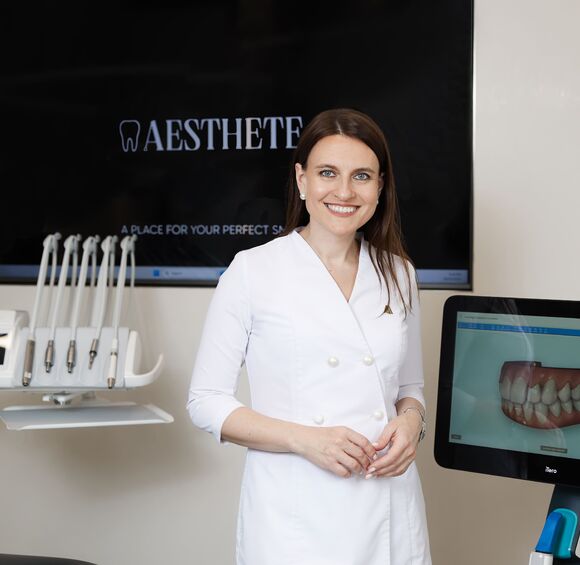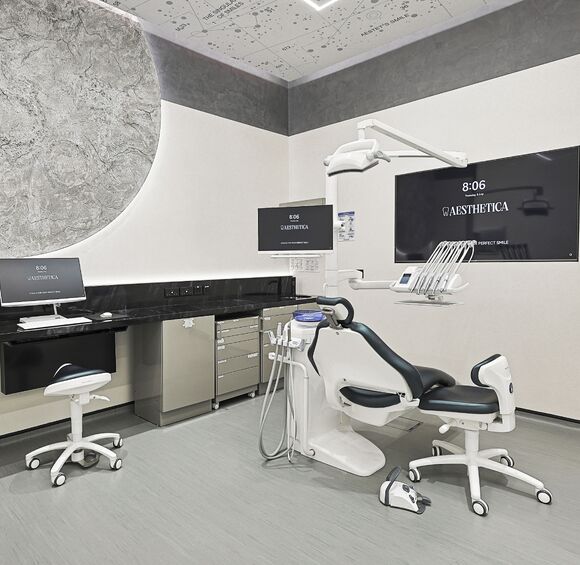Tooth extraction is a significant dental procedure that requires special oral care for quick and successful healing. An essential aspect is giving up certain habits, particularly smoking. But how strict are these restrictions, and how can smoking affect the healing process? In this article, we will thoroughly discuss whether it's possible to smoke after tooth extraction and the consequences of ignoring the dentist's recommendations.
Why Do I Need to Stop Smoking After a Tooth Extraction?

Following a tooth extraction, dental professionals highly recommend refraining from smoking for a minimum of 48 hours. The rationale behind this advice lies in the fact that smoking can considerably hinder and decelerate the recuperation process, heightening the likelihood of postoperative complications.
To elaborate, nicotine has the effect of constricting blood vessels, thereby diminishing the blood flow and the delivery of essential nutrients to the site of the wound. Furthermore, the smoke emanating from cigarettes can irritate the wound, potentially leading to infection, and disrupt the formation of a blood clot crucial for shielding the socket from infections and promoting the healing process.
Hence, if you wish to steer clear of possible complications and facilitate a prompt recovery, it is advisable to abstain from smoking following any gum-related dental surgery.
Hookah and electronic cigarettes
Many individuals hold the belief that smoking hookah or utilizing electronic cigarettes presents a safer option when compared to traditional cigarette smoking, particularly following dental surgery. However, this notion does not align with reality. Both hookah and vaping exert adverse effects on the healing process post tooth extraction.
Smoking hookah can give rise to identical issues as conventional cigarette smoking. The presence of nicotine and other detrimental substances in hookah smoke can incite irritation at the wound site and impede its healing progress. Furthermore, the act of smoking hookah often involves forceful inhalation, elevating the likelihood of dislodging a blood clot from the socket, potentially leading to a complication known as alveolitis.
Electronic cigarettes also introduce a risk to the process of wound healing. While they do contain fewer toxic compounds in comparison to regular cigarettes, inhaling vapor can induce dryness within the oral cavity, thereby adversely affecting the wound's state and retarding the healing course. Additionally, the nicotine found in vape liquids hampers blood circulation and has the potential to elicit the same issues as traditional cigarette smoking.
To summarize, neither smoking hookah nor using electronic cigarettes can be considered safe following a tooth extraction procedure, as they both pose a substantial threat to the healing process, elevating the probability of experiencing complications.
Can you smoke after tooth extraction if sutures are placed on the gum?

Following intricate dental procedures, such as the extraction of wisdom teeth or other surgical interventions, healthcare professionals often employ sutures to safeguard the wound and promote proper healing. In scenarios where stitches are utilized, smoking becomes an even greater peril, as it can detrimentally impact the integrity of the sutures and the overall wound healing process.
Partaking in smoking during the phase of wound healing while sutures are in place can result in a multitude of grave repercussions. Firstly, nicotine induces vasoconstriction, causing a reduction in blood flow to the surrounding tissues, thus impeding the healing trajectory and elevating the susceptibility to infectious complications. Secondly, the smoke emitted by cigarettes can provoke irritation within the oral mucosa and potentially infiltrate the wound, heightening the likelihood of inflammation and the rejection of sutures. Additionally, the act of smoking generates negative pressure within the oral cavity, which may precipitate the separation of sutures and dislodgment of the blood clot from the socket, intensifying discomfort and potentially leading to the development of alveolitis.
Consequently, if sutures have been employed on the gum, it is imperative to completely abstain from smoking until the wound has undergone complete healing and the sutures have been meticulously removed. Adherence to this protocol will serve as a safeguard against numerous complications and expedite the overall recovery process.
Smoking and anesthesia are an undesirable combination

Smoking before or immediately after dental surgeries involving anesthesia can pose significant health risks. The interaction between tobacco smoke components and anesthetics may lead to unpredictable and unwanted outcomes.
It is important to abstain from smoking before undergoing surgery, as nicotine and other toxic substances in cigarettes can alter the metabolism and effectiveness of anesthetic drugs. This might necessitate dosage adjustments and, consequently, increase the risk of side effects from anesthesia.
Smoking after surgery, especially in the first few hours following anesthesia, is also highly discouraged. Nicotine can lead to increased blood pressure and heart rate, putting additional strain on the heart when the body has not yet fully recovered from anesthesia. Moreover, smoking can exacerbate dizziness and nausea, often experienced after anesthesia, and increase the risk of hematomas and bleeding due to enhanced blood flow.
Therefore, to ensure maximum safety and effectiveness of anesthesia, as well as to prevent unwanted complications, it is critically important to avoid smoking both before and after dental surgeries.
The impact of smoking on wound healing after dental surgeries

Wound healing after dental surgeries is severely negatively affected by smoking. Tobacco smoke contains a large number of harmful substances that can suppress the immune system, constrict blood vessels, and slow down blood circulation, significantly hindering tissue recovery.
One of the primary components of cigarette smoke, nicotine, causes blood vessels to contract and reduces blood flow to the surgical site. This leads to poorer nourishment and oxygen supply to the damaged tissues, slowing their recovery and extending the healing period. Additionally, nicotine stimulates the release of adrenaline, which can increase stress and pain sensations, negatively affecting the recovery process.
Other harmful components of tobacco smoke, such as carbon monoxide, tar, and heavy metals, suppress local immunity and promote the development of inflammatory processes, increasing the risk of infectious complications and potentially leading to chronic inflammatory diseases of the gums and surrounding tissues.
Smoking also interferes with the normal formation of a healthy blood clot in the socket after tooth extraction, a crucial step in the healing process. Without proper clotting, the risk of developing a dry socket, where bone and nerves are exposed, significantly increases, causing intense pain and delaying recovery.
Thus, smoking after dental surgeries can significantly slow down the healing process, increase the likelihood of infectious and inflammatory complications, and exacerbate pain sensations. To ensure the best conditions for healing and avoid additional problems, it is very important to refrain from smoking throughout the recovery period.
Smoking after wisdom tooth removal: differences and consequences

Wisdom tooth extraction is a complex dental procedure that often requires a more extended recovery period. It is important to approach the issue of smoking after such an operation with caution.
Wisdom teeth are usually removed due to inappropriate positioning or lack of space, leading to significant surgical intervention and a larger wound. Smoking during this period can seriously impede healing, as cigarette smoke worsens blood circulation and can irritate the wound, increasing the risk of inflammation and infection.
The formation of a healthy blood clot after removal, protecting the socket and aiding healing, is especially critical. Smoking hinders this process, increasing the risk of developing a dry socket — a condition that causes severe pain and requires additional treatment.
Therefore, it is highly recommended to avoid smoking during the healing period after wisdom tooth removal to reduce the risk of complications and accelerate recovery, ensuring the best conditions for healing.
Referense
- WebMD. Dry Socket: Symptoms and Treatment. WebMD .
- Inchingolo, F. et al. Oral cancer: A historical review. International Journal of Environmental Research and Public Health , 2020, 17(9).















